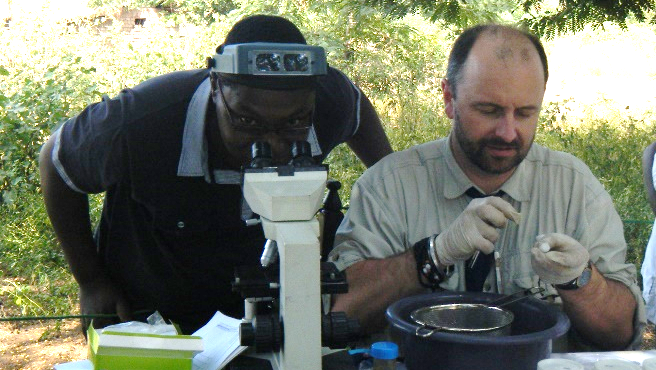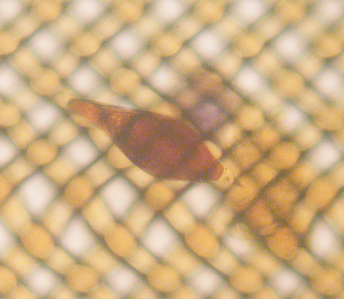
LSTM’s Professor Russell Stothard is senior author on a new paper in which researchers from the UK and Malawi have described the unusual occurrence of novel schistosome hybrids infecting children along the Shire River Valley.
The findings, published in the journal Emerging Infectious Diseases, are particularly important because they show that these human schistosomes have the potential for abrupt changes in their genetic constitution through genetic interactions with schistosomes in livestock. Its consequences alter the basic biology of the schistosome considerably, confounding perhaps current control strategies aimed exclusively at people.

Urogenital schistosomiasis was typically considered to be caused by Schistosoma haematobium alone. Recent work in West Africa, however, has shown that schistosomes usually found in cattle, such as Schistosoma bovis, interact and introgress their genes with S. haematobium. Such hybrid schistosomes have been shown in animal models to change significantly in their ability to cause infection and disease, for example, through increased production of eggs and enabling the schistosome to utilise a wider range of intermediate snail host species. This can increase its geographical range of endemic transmission.
Lead author Dr Bonnie Webster from the Natural History Museum, who has a longstanding collaboration with LSTM’s Professor Stothard, said: “Due to advanced molecular methods, hybridisation between animal and human schistosome species is being frequently reported in West Africa but our data presented here, a first from Central Africa, demonstrate its wider nature across continental Africa”.
Professor Stothard, who has been working in Malawi since joining the LSTM in 2011, stated that: “We now need to conduct more in-depth molecular analyses and whole genome studies on these hybrid forms to investigate all possible inter-species combinations”. Taken as a whole, a new appraisal of urogenital schistosomiasis in Malawi is warranted which should adopt a OneHealth approach that brings veterinary and medical perspectives into a closer union.
As increasing livestock production through expanded cattle husbandry is a growing endeavour in Malawi, it may have more cryptic consequences upon human disease. Professor Stothard concluded: “With greater scrutiny of populations of S. haematobium, I foresee that urogenital schistosomiasis across Africa will have even stronger connections with zoonotic potential than previously imagined”.
Webster BL, Alharbi MH, Kayuni S, Makaula P, Halstead F, Christiansen R, et al. Schistosome interactions within the Schistosoma haematobium group, Malawi. Emerg Infect Dis. 2019 Jun. https://doi.org/10.3201/eid2506.190020